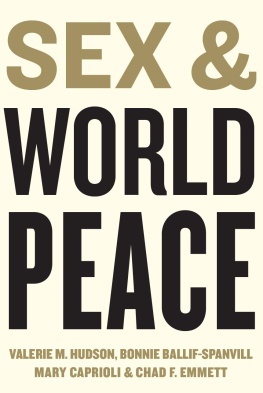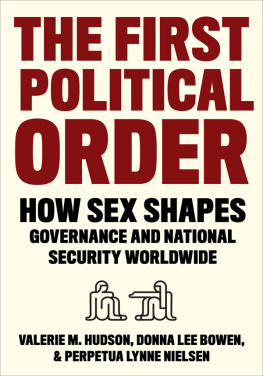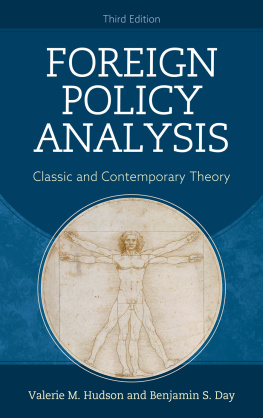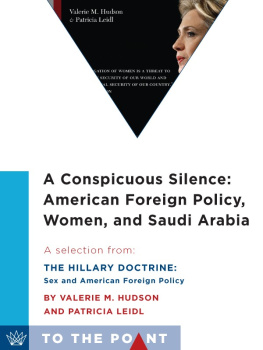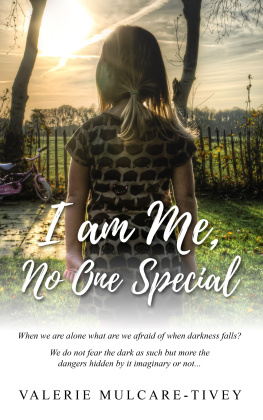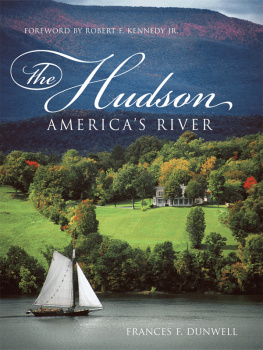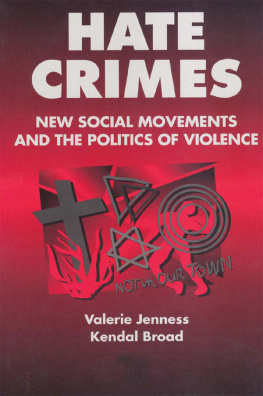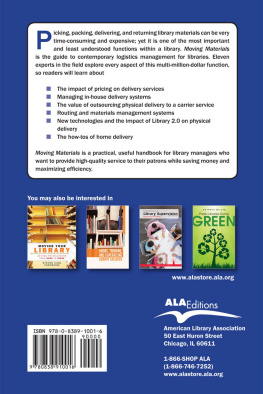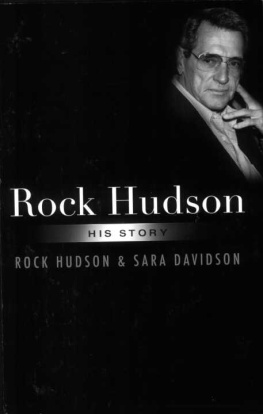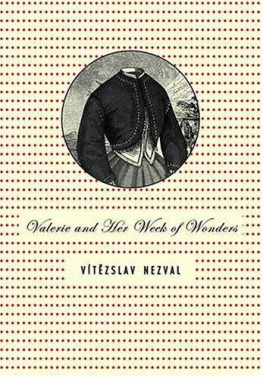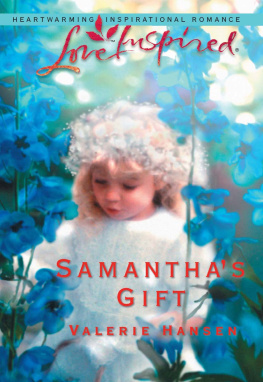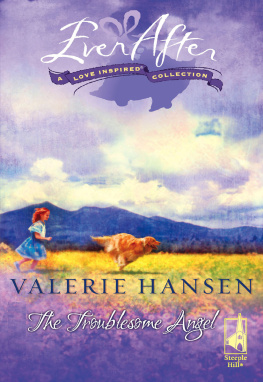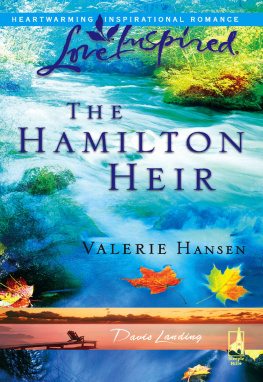COLUMBIA UNIVERSITY PRESS
Publishers Since 1893
New York Chichester, West Sussex
cup.columbia.edu
Copyright 2012 Columbia University Press
All rights reserved
E-ISBN 978-0-231-52009-6
The authors and Columbia University Press gratefully acknowledge the support of the David M. Kennedy Center for International and Area Studies and the Womens Research Institute of Brigham Young University in the publication of this book.
Library of Congress Cataloging-in-Publication Data
Sex and world peace / Valerie M. Hudson... [et al.].
p. cm.
Includes bibliographical references and index.
isbn 978-0-231-13182-7 (cloth : alk. paper) isbn 978-0-231-52009-6 (ebook)
1. International relationsSocial aspects. 2. Sex discrimination against women. 3. Women and war. 4. Women and peace. 5. PeaceSocial aspects. 6. WarSocial aspects. I. Hudson, Valerie M., 1958
jz 1253.2. s 49 2012
303.66dc23
2011048554
A Columbia University Press E-book.
CUP would be pleased to hear about your reading experience with this e-book at .
References to Internet Web sites (URLs) were accurate at the time of writing. Neither the author nor Columbia University Press is responsible for URLs that may have expired or changed since the manuscript was prepared.
Maps
Map 1. Physical Security of Women
Map 2. Son Preference and Sex Ratio
Map 3. Trafficking in Females
Map 4. Polygyny
Map 5. Inequity in Family Law/Practice
Map 6. Maternal Mortality
Map 7. Discrepancy in Education
Map 8. Governmental Participation by Women
Map 9. Intermingling in Public in the Islamic World
Map 10. Required Codes of Dress for Women in the Islamic World
Map 11. Discrepant Government Behavior Concerning Women
Figure
Tables
Tables in Appendix B
THE TEAM OF AUTHORS for this book is multidisciplinary, and this is reflected in the text. We have two political scientists who specialize in international relations (Hudson and Caprioli), one geographer who specializes in the study of Islamic societies (Emmett), and one psychologist who specializes in the relationships between socialization, gender, and peace (Ballif-Spanvill). These interests manifest themselves in the literature and examples cited in the book. For example, some of our most detailed micro-analyses are of Islamic nations. This emphasis reflects the in-depth knowledge of the circumstances of these nations held by Emmett. Similarly, the socialization examples are drawn primarily from the psychological literature, and not from political science, reflecting the expertise of Ballif-Spanvill. We believe that this diversity of background and professional training enriches the manuscript.
This book would not exist without the goodwill and hard work of many individuals.
First, we would like to thank the WomanStats coders past and present, including first and foremost our director of operations, S. Matthew Stearmer, without whom the project could not have accomplished what it has thus far. We would also like to thank Jana Pope Badger, Brooke Greer, Thelma Young, Jo Cozzens, Rachel Ligairi, Amy Stevenson, Julie Johnson, Evis Farka, Meg Wilkinson, Becca Hall, Hope Buckman, Tania de Oliveira, Joanna London, Dan Phelps, Melissa Paredes, Leah Raynes, Mary Ann Tanner, Ashley Custer, Emily Pomeroy, Casey Fowles Cox, Nichola Taylor, Katie Phelps, Jason Anderson, V. Matt Krebs, Meghan Foster Raynes, Sarah Roessler, Colleen Johnson, Julianne Parker, Amalia Smith, Margy Hannay Elliott, Douglas Melvin Hansen, Carl Brinton, Laura Summers, Becca Nielsen, Patricia Campbell, Charla Finnigan, Autumn Smith Begay, Lindsey Hulet, Diane Bailey, Melinda Hardy, Caitlin Carroll, Luke Warnock, Maren Reynolds, Tiffany Stanley, Erin Roundy, Lindsey Johnson Leon, Becky Perez, Analiesa Leonhardt, Rebekah Butterfield Wightman, Grady Deakin, Vanessa Nielsen Molina, Alixandra Lewis Adams, Michael Hall, Aimee Farnsworth, Kendra Arguello, Lauren Smith, Andrea Kelly, Rachel Fairclough Zirkle, Julie Ford, Jessica Hogstrom, Michele Trichler, Arielle Badger, Kinsi Suttner, Crys Kevan, Stephen Cranney, Morgan Wills, Nick Griffin, Eliza Houghton, Jeramy Ferguson, Victoria Fox, and Jillian Wheeler. It has been a complete joy to work with these young people.
We also wish to thank those who provided funding for our efforts. Among our supporters are the Womens Research Institute; the David M. Kennedy Center for International Studies; the Department of Political Science, the Department of Geography, the College of Family, Home, and Social Sciences, and the Office of Research and Creative Activities, all of Brigham Young University; Hunt Alternatives; the Office for the Vice President for Research, University of Minnesota, Duluth; the Sorenson Legacy Foundation; Ruth Silver; and several anonymous donors.
We would also like to thank Mark Jackson and his students at the BYU Library Geospatial Services Center for producing our maps, and Hwanhi Chung for handling the endnotes for two of the chapters.
We would like to thank several scholars whose work has inspired our own, including Rose McDermott, Alma Don Sorensen, David G. Winter, and J. Ann Tickner. Thank you for what you have written, and what you have taught us.
We thank International Security, Foreign Policy, and the Journal of Peace Research for permission to use portions of articles we have published in those journals.
We would like to thank Anne Routon for her confidence in us, as well as two anonymous reviewers who were most helpful in developing the vision of the book.
Finally, we would like to thank our families for giving us the courage and the time to write this book.


